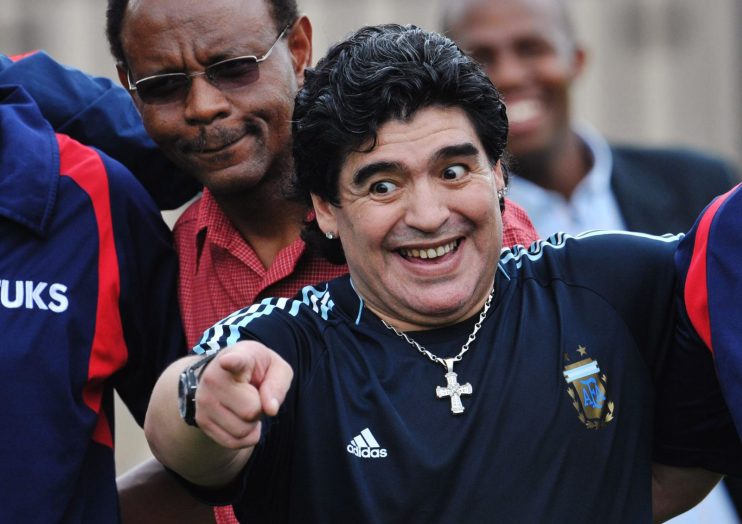Diego Maradona’s maverick spirit lives on in a new wave of athlete activists

Maradona’s rebellious nature and habit of hanging out with the wrong crowd was a product of his upbringing in the shanty town of Villa Fiorito, and it’s fair to say it never left him.
In a world where athletes and celebrities are increasingly held up as role models, Maradona, through his own words and actions, was anything but.
His career was characterised by incredible highs and dramatic lows, with very little in between. Diego didn’t do ‘normal’.
Maradona’s moral legacy may depend on your political persuasion, but one thing is universal: the admiration for his genius on the football field.
For an English audience, Maradona will often be remembered for his ‘Hand of God’ moment, as evidenced by several front pages that marked his death.
His career-defining performance in the quarter-final of the 1986 World Cup was seen as a symbolic revenge so soon after the Falklands War and Maradona was more than happy to fan the political flames, as referenced in his autobiography years later.
In truth, what happened in the Azteca Stadium was one of Maradona’s more palatable controversies.
In 1984, while playing for Barcelona in the Copa del Rey final against Athletic Bilbao, Maradona was involved in a mass brawl which led to 60 people being injured.
Later that year, he moved to Naples where he elevated the team to the most successful era in its history. But his stay ended in ignominy after his links to the Camorra criminal organisations were exposed and he received a 15-month ban for cocaine use.
This rap sheet for a modern-day player would be career-ending and legacy-defining. But these were different times and Maradona displayed a Lazarus-like quality for comebacks.
Maradona the commercial pioneer
Despite the controversies, and long before Lionel Messi and Cristiano Ronaldo entered the debate, it was Pele and Maradona who were considered the two greatest footballers of all time.
But their unquestionable brilliance on the pitch was where similarities between the two ended.
As Diego himself would say: “I simply want to be Maradona. I don’t want to be the successor nor the second Pele.” And there is no doubt he was the antithesis to Pele’s polished post-career success as a global figurehead for the sport.
Alongside his first agent, Jorge Cyterszpiler, Diego helped revolutionise the global business of football that Pele, and a whole industry, profit from today.
He signed major commercial deals with the likes of Puma and Coca Cola, controlled his own image rights and consolidated his business interests in a separate entity – Maradona Productions – based in Liechtenstein.
It was Cyterszpiler who commission the crew whose footage would underpin Asif Kapadia’s highly acclaimed documentary, released last year.
The film captures the chaotic nature of Maradona’s life and the media spotlight that his success and failures brought upon him. Despite the unadulterated adulation and wealth, he became an example of how fame can be a destructive force.
His rebellious nature became further entrenched in retirement, with his political interventions increasing and public displays of support for socialist leaders such as Fidel Castro and Hugo Chavez.
Rashford and Rapinoe
Now, in a period where athletes personal brands have never been more polished, we are seeing a new wave of sporting activists who are rebelling against the status quo in different ways.
The likes of Marcus Rashford, LeBron James, Colin Kaepernick and Megan Rapinoe are all standing up for what they believe in, regardless of the fact it may alienate a significant proportion of their fans.
However, there are always limitations to this rebellion when commercial interests are in contradiction with taking an unabashed stance.
Maradona and Muhammad Ali were revolutionaries in the truest sense of the word. Whether these celebrities are prepared to go that far, in the age of social media where they are their own publishers, we will see.
While the causes are not comparable, you cannot help but think the man who was the definition of anti-establishment would be proud to see his rebel spirit live on in the sporting icons of tomorrow.
Simon Oliveira is the founder and chief executive of KIN Partners. He has worked with stars including David Beckham, Usain Bolt, Neymar Jr, Lewis Hamilton, Andy Murray and Liam Payne, was a founding partner in content studio OTRO, and has co-produced documentaries such as I am Bolt and Class of ’92.